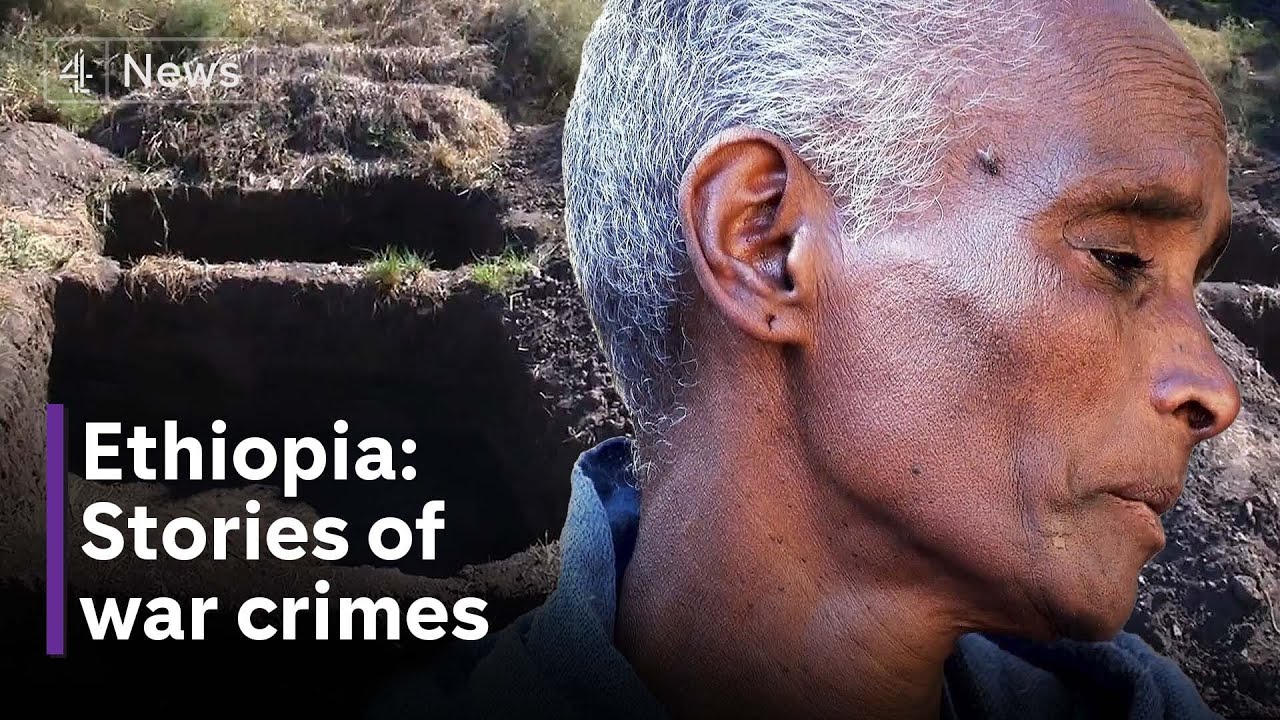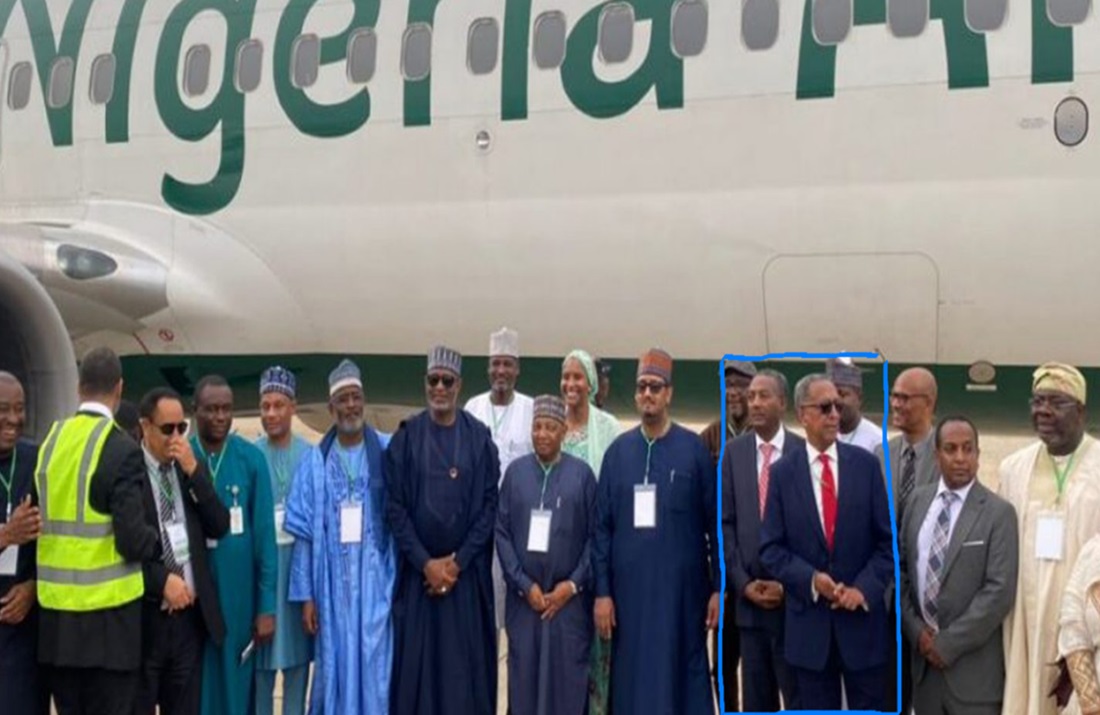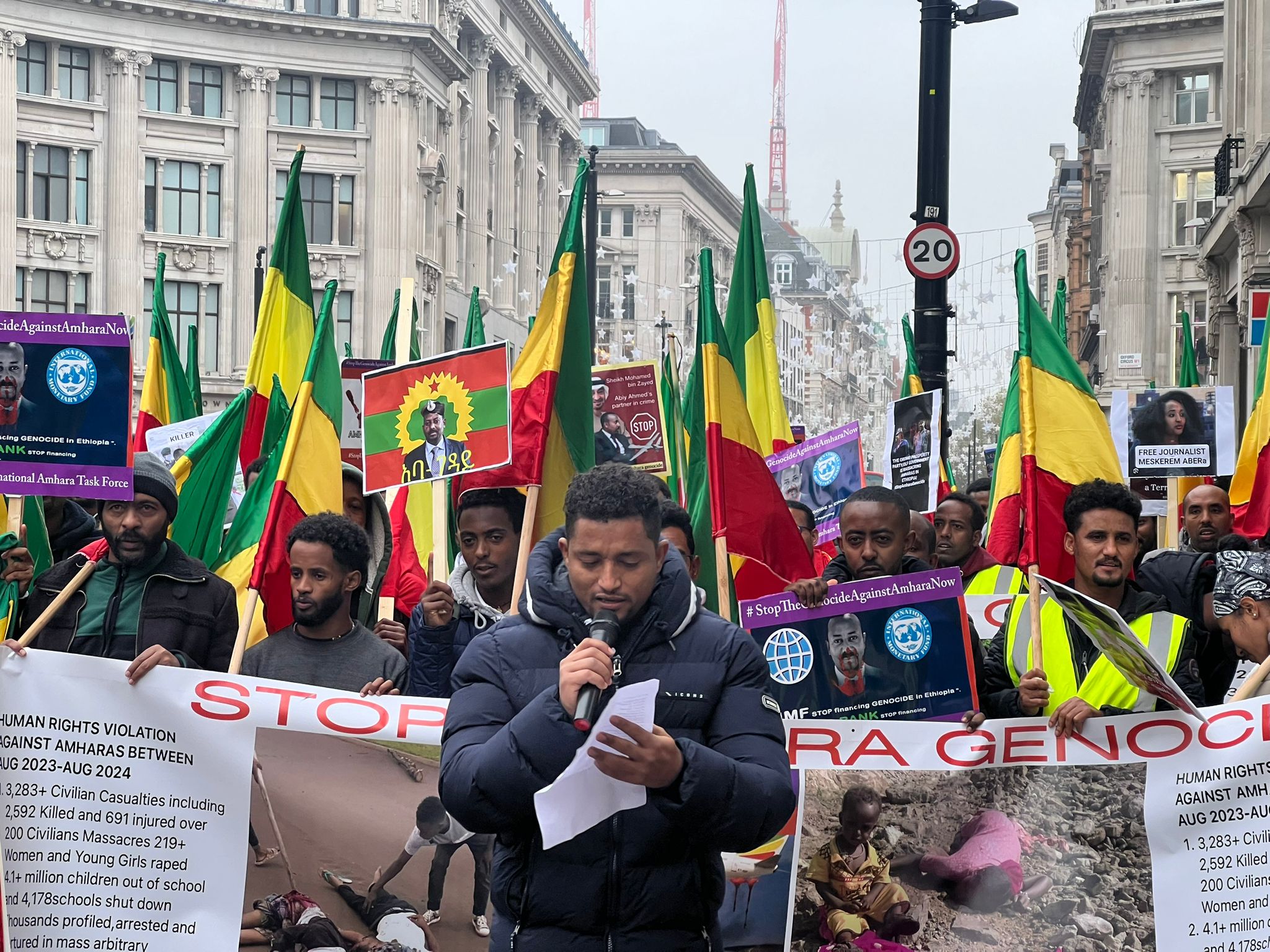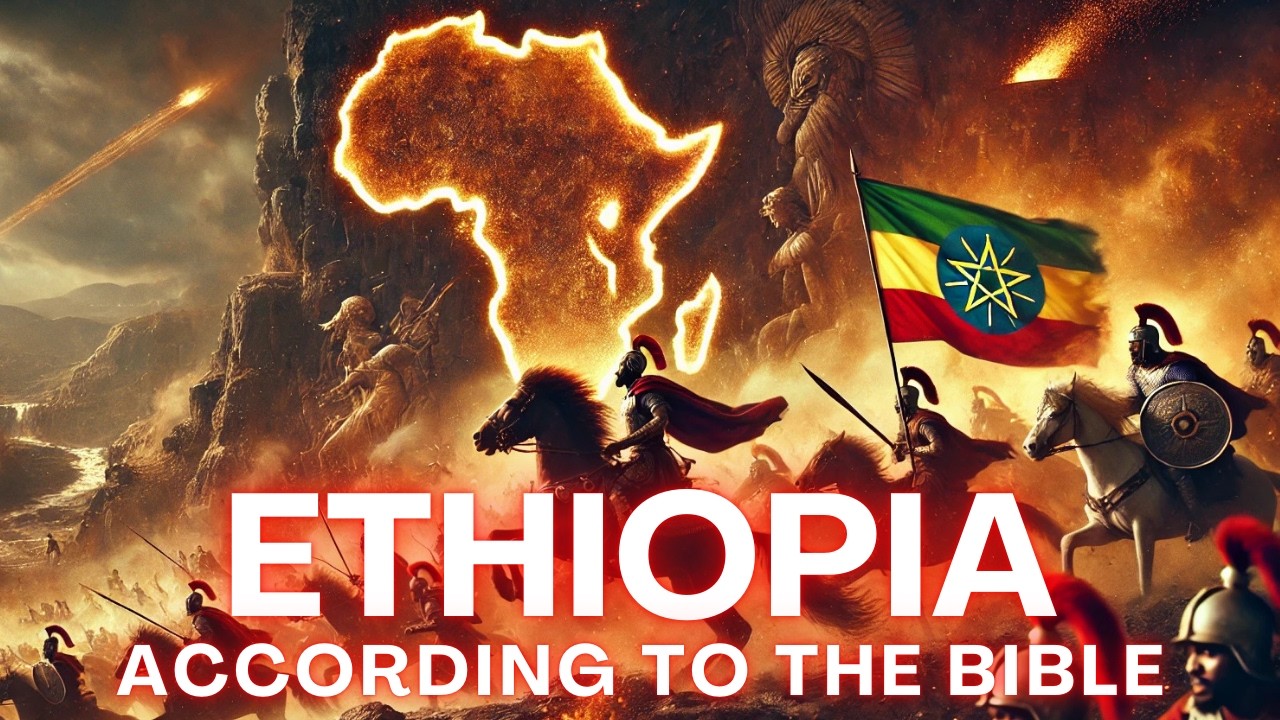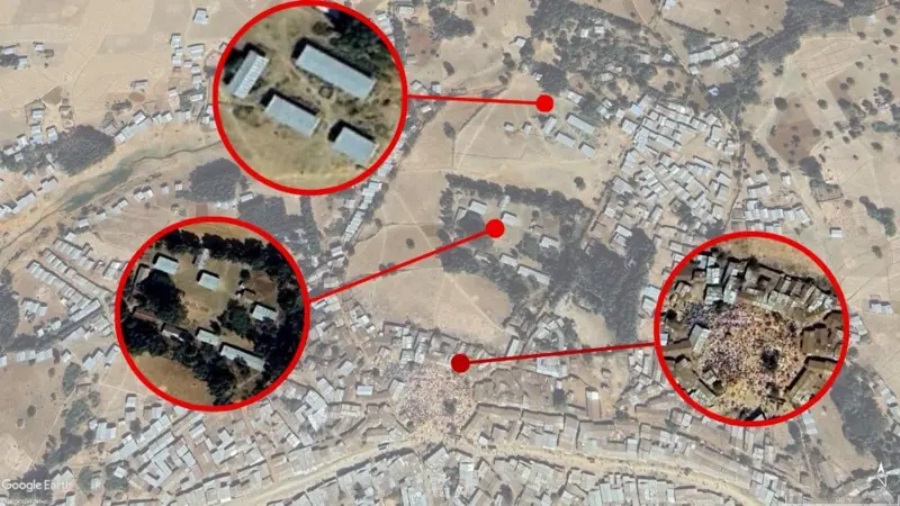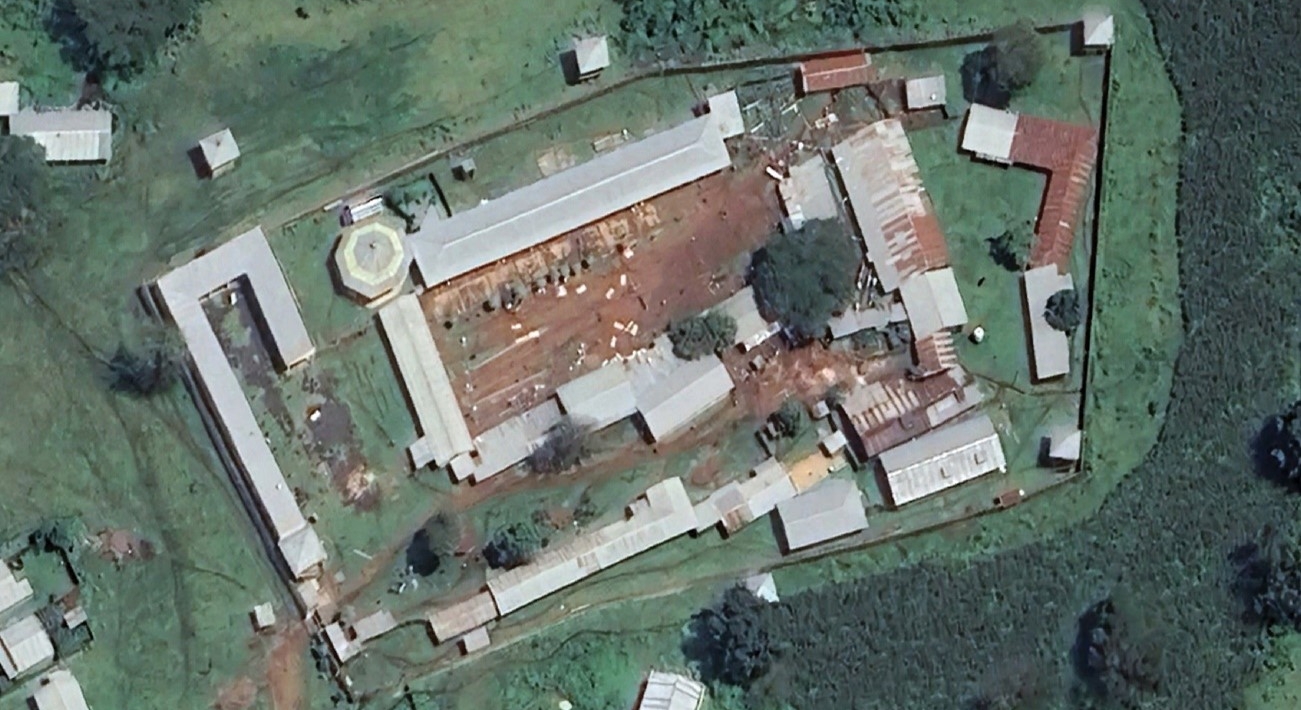By Mammo Muchie
September 29, 2017
Abstract
Prof. Mammo Muchie: DST/NRF Research Professor, Tshwane University of Technology & TMDC, Oxford University, UK
It is Ethiopiwinet that promoted Ethiopianism and now let us re-imagine, learn, know and promote Ethiopianism to revitalize Ethiopiawinet by rejecting fully the ethnic divisions that should never have been planted of all places in the world in Ethiopia, the provider of spiritual strength for all the people of the world that suffered from slavery, colonialism and imperialism. It is the sacred duty of all of us to promote with Ethiopianism a new Ethiopiwinet where we all come together by valuing a dialogue culture to solve any problem and never at all using arguments or battles that bring war and killing to any Ethiopian anywhere at all. Let us work together to realize fully to treat each other as one family and not as relatives or strangers by promoting true values and principles that refuse to support ethnic cleavages. Let us all work to love our people and Ethiopia as a united community where we all believe better to hurt myself than hurting any other Ethiopian by including all the ethnic communities without any exception. I myself truly believe that better “I, Mammo die than seeing any Ethiopian or African die, any Yoruba, Ibo, Amara, Oromo or any Tigre or Eritrean or any Gurage and all die!”(Mammo Muchie). Let us value the rich spiritual, knowledge and struggle heritages to promote a great Ethiopian civilization now also; as in the past by making sure Ethiopiawinet anchored unity is the foundation to make us all go forwards and onwards. Let us learn to agree how to promote a dialogue culture and peaceful and intelligent debate never again to reduce Ethiopia to any ethnic fracturing. Let us work for a new Ethiopiwainet civilizational Manifesto. Ethiopianism had two Manifestos: the first in 1829 and the Second five months after the Great African Adwa Victory in 1896. Let us create the Ethiopiwinet for Ethiopianism and the Ethiopianism for Ethiopiwinet Manifesto in 2018. All are invited to join no matter what politics they follow and what political party they support at the moment. Let us work to produce the politics that will promote Ethiopia to live forever and ever with a vision to create the Ethiopwinet national character based entirely on two values: to promote the learning, the sciences, the arts and the knowledge of all the people of Ethiopian without any exception and to promote the wellbeing of the people by making sure no Ethiopian is a beggar and goes hungry, thirsty and becomes shelter less and the environment is safe and life enters into a civilizational dynamics. That must be captured in the Ethiopiwinet for Ethiopianism and conversely for Ethiopianism for Ethiopiwinet Manifesto! This is a call for all of you to move away from the ethnics traps and re-discover and re-imagine a new Ethiopia that can become a true model and example for creating a civilization and spiritual anchored world at a time when the world is facing true challenges of where it is going.
1. Introduction
There is an intrinsic merit to preserve Ethiopianism and Ethiopiawinet for our time, and not give in to the degrading mantra of ethnic enclosures that has degraded civic Ethiopian citizenship to a particularly virulent and limiting concept of the currently ethnically defined and vernacularly fenced off citizen. This primordially and biologically defined ethnically fractured citizen must be fully liberated to emerge as the Ethiopian citizen par excellence with full human rights, self-worth, dignity, independence, agency and with the freedom to self-organise, self-express, self-define and self-believe, self-realize and self-develop as an Ethiopian citizen without diminishing any and all the human rights regardless of language, ethnic origin, religion, gender and any other varieties and diversity. Difference or diversity is no liability, and with Ethiopiawinet, diversity can be an asset and Ethiopianism, as a global resistance to colonialism and imperialism was founded upon Ethiopiawinet. Human rights come first and it is a marker of our similarity that we all should celebrate. Differences and diversity we should appreciate and see them as values to enrich our humanity. There should be therefore no compromise on the Ethiopian and African foundationally anchored framework for citizen full human rights expression and engagement. Everything is negotiable once the foundational framework of Ethiopiawinet for full human rights expression is accepted. There can be no negotiation with those who arrogantly and impudently call Ethiopia a fiction and an invention and recently even change the bible to remove the name Ethiopia despite the fact Ethiopia describes the whole of Africa and the Indian Ocean and even more regions of the world. Without the idea of Ethiopia, there is no idea of a future for all those living in the current day geography that delineates current day Ethiopia
Key questions we all should address especially by all who play the current ethnically tarnished politics are the following:
1. Can the current ethnically fractured organizations share Ethiopianism and Ethiopiawinet and create a united front on values and principles they share and agree whatever differences they have?
2. Will the current ethnically absorbed regime come out of its ethnic politics and adopt Ethiopianism for pan-Africanism and the African Renaissance and Ethiopiawinet for unity of all Ethiopians and the realization of their full human rights away from the fractured ethnic divisive rights?
3. How can the current missing political movement, that upholds the wider Ethiopiawinet foundational anchor for full human rights expression, be created?
How can the currently ethnical agitators by cashing in on their ethnic-vernacular group identity become sober appreciating the need to unite the people of Ethiopia as nothing else but to evolve as one humane family benefiting and humbly appreciating the rich Ethiopiwinet history of proven resistance, philosophy, humanity and civilization?.
2. Ethiopianism
Ethiopianism promoted African for Africans, Africans for humanity and humanity for God. The slaves that were denied both their humanity and their right to worship God as humans found solace and comfort by looking at Ethiopia to have and express with confidence and self-worth their right to be human and worship and open access to God. Both in America in 1829 and in Southern Africa in 1896, two Ethiopian Manifesto’s expressing these rights to be African, human and the right to worship God were created. No nation in this planet except Ethiopia had this distinction, grace, opportunity and recognition. We ask now how much do current day Ethiopians know that Ethiopia has this special spiritual quality bestowed upon it in this planet. Are those who have not come across to know this extraordinary recognition of Ethiopia as a spiritual fountain head for liberation of Africans in particular and all the oppressed in the world in general now ready, open and willing to learn and even more apply this powerful fore bearer of Pan-Africanism to solve all the current problems Ethiopia faces by adding spiritual value and strength to deal with all the unending and lingering material difficulties such as poverty, inequality, unemployment, corruption, failure in leadership, governance, systems , institutions , services and values of care and share to move Ethiopia on forwards and onwards along a confident and independent journey. Ethiopianism is a spiritual fountainhead to unite all Ethiopians to make sure they all acknowledge, appreciate and unite that the Ethiopia they have today has had global appreciation as a great treasure for all humanity that have gone through difficult times. Hurting Ethiopia today is tantamount to nothing else than to undermine this spiritual legacy that Ethiopia gave to the world.
The early signs of Ethiopianism date back to the 16th century, when slaves in America found solace in the promise of a homeland in the empire of Ethiopia in the Nile region. The references to Ethiopia in the Bible (“Ethiopia” occurs more than forty times) provided them with an ideology that they could use for their spiritual, political, and cultural uplifting. By far “probably the most widely quoted verse in Afro-American religious history”–is Psalm 68:31: “Princes shall come out of Egypt; Ethiopia shall stretch her hands unto God”. The verse was interpreted as pointing to the end of the “curse” on the black race–an end to the alienation of Africans as humans from God. This was a European belief that was, to some extent, shared by Africans. Thus came into being the movement of Ethiopianism as a “method of winning Africa for Christ and God”, and as a forerunner of the “Africa for Africans”, “Africans for humanity” and “humanity for God” movement and the subsequent African philosophies to develop African unity to confront imperialist power. The verse gave rise to what scholars have termed “a biblically-rooted pan-African hermeneutic” that later became a widely used source of inspiration and legitimization to inspire Africans to continue the struggle against colonial domination. Some saw the beginning of the fulfillment of this prophetic verse on the political level. For example, after the 1792-1800 successful slave insurrection in Haiti, it was declared: “Thus doth Ethiopia begin to stretch forth her hand, from the sink of slavery, to freedom and equality” (Dread History, undated). In both America and Southern Africa, the Ethiopianism movement was firstly a reaction to the discrimination in ecclesiastical administration and the outright marginalization of black clergymen for no other reason than the color of their skin. It was an unwritten law by white missionary churches not to ordain black clergy. The fact this discrimination took place in locations as far apart as America and South Africa over a long period of time is proof that it was more a systemic practice than a symptom of sporadic racism. The relevance of the Ethiopianism movement, philosophy and the 1829 and 1896 two manifesto’s to current day Ethiopia is to move without fail by making a paradigm shift from ethnic politics to Ethiopiwinet . Ethiopianism was also reinforced by the 1896 decisive African Adwa Victory over World Empire, as Raymond Jonas rightly put it. The fact that the 1896 Ethiopia Manifesto originated during the time of the battle of Adwa makes also this great victory part and parcel of the Ethiopianism movement. We should all work to make sure that Adwa will be recognized finally not just as a place of an ant-colonial successful battle, but more importantly also as a historical heritage site to spread vast pan-African education across the entire Africana world for years to come now and the future.
Ethiopianism is said to have gone to the extent where all non-European peoples have been defined as Ethiopians. It is a grand philosophy where all the oppressed people are defined by the only Ethiopia that was never colonized despite being colonially attacked many times. It is now seen very relevant for promoting pan-Africanism and the African renaissance
3. Ethiopiawinet
Ethiopiawinet has been expressed with a long memory of resistance that all the various linguistic groups in Ethiopia expressed by uniting and struggling together. The 1896 great Adwa Victory was an expression of unity and the result of Ethiopiwainet. The Ethiopianism movement globally should reinforce the Ethiopiwinet to unite all Ethiopians with their full human rights also inside Ethiopia. Failure to defend Ethiopia’s history, is also a failure to live up to the worthy expectations of all those who derive so much spiritual energy from the idea of Ethiopia as a free provider to the world of the ‘resistance-liberation logocentric imagination’ that is much needed as a tangible resource still in vulnerable and penetrable Africa.
Ethiopia is synonymous with the very idea of a de-colonizing imagination. Its history of successful resistance is the timeless bearer of this alternative decolonizing logo for the spread of the African world’s liberation imagination. Ethiopia- as an anti-colonial symbol- is very relevant today, as it was yesterday and will be too in the future. The significance of Ethiopia’s history now, at a time when Africa is being re-threatened with the scramble of Africa needs to be appreciated. Its importance during this time when the former colonial powers are returning to Africa with military aggression cannot be lost to both those willing to resist the new aggression and those who commit this latest aggression. At the core of Africawinet is this Ethiopiawinet that helped all Ethiopians to unite and resist together. It is Ethiopiawinet that created Ethiopianism globally. It is not only Ethiopianism but also Ethiopiawinet that is at the core of the African renaissance. It is also at the core for ending Africa’s repeated humiliation. This is because African unity can be anchored with a value and dignity that Ethiopiawinet attained over 500 years of resistance. This achievement by the Ethiopian-Africans that resisted all forms of humiliation is a positive data for building Africa’s united future and to bring back the African unity first agenda to the fore today. It is for these reasons we respect our ancestors, whatever their shortcomings, and problems they were unable to solve in their life times and left behind for future generations to settle. They left the timeless inspiring resources to build Africa’s united future. The positive data they left us in the Ethiopian history remains to this day a relevant asset to build Africa’s much united future. Ethiopians now and in the future must always value and treasure this great historical achievement and not play the current ugly, divisive and cynical ethnic games that the ruling elite play by dividing and degrading this core provider of Africa’s overall liberation imagination into vernacular-ethnic enclaves. Ethiopians as Africans and not as degraded ethnic enclaves must unite and strive to make ethnicism as a past by coming together with foresight and sense of history. When they retain ethnic divide and rule, they make colonialism alive! When they reject ethnic divide and rule, that colonialists used to draw the borders across Africa that should have been removed when Kwame Nkrumah declared Africa unite or perish, they can bring to Africa liberation from colonialism!
Ethiopiawinet should be built and developed from the following characteristics Ethiopia has to this day:
- a) A long history where the ancient Khmet and Egypt are also Ethiopia or Africa
- b) An internally generated civilization (written, art, architecture, music, religion and so on3. c) A history of resisting and scoring victories against economically and politico- militarily superior forces,
d) A unique psychological makeup where the notion of the divine and the sacred graces every activity that the people engage in.The individual, the state and the nation use for their lives divine presence whether they are Christians, Muslims, Judaic and even Pagans. The state had its own ethos and had its own ‘Fetah Negist’ and ‘Kibre Negist.’ In war we note how the idea of the divine is invoked to give courage to the troops when they charge (e.g. Giorgis’s participation in Adwa!) and in victory the people show humility by referring that all their power is due to God. Whether we like it or not religion is a way of life to the rural majority of the population. And the change we want, the modernisation we seek is to make life better for the majority of the rural areas. We do not go and preach Jeffersonian democracy or Marxism to them. If we are serious we go and learn from them and build on their beliefs and make modernisation sensible by translating it into the language and way of life they are used to. This is how Japan, Korea and others did it by appreciating their context but not rejecting it like the strange ruling elites that replaced the traditional system are doing now!Even China with its Marxism did not reject Menicusian, Confucian, Taoist and Buddhist values which the population had. They tried to Sinnify their modernist weapon Marxism so that the people can embrace it. Like everything else which came into contact with China, Marxism became absorbed rather than the other way round! They call it Marxism which Chinese characteristics and in reality in China Marxism was not used like in Ethiopia. Mao Tse Tung started by investigating first the peasant movement in Hunan where he was born, not by throwing half-baked and non-comprehended phrases from Lenin and Stalin. He did not select phrases that insult to persecute and even kill his comrades as it happened in Ethiopia. Never forget in Ethiopia after people were killed, the strangest things also have taken place where apparently along with the dead body was placed ‘I was a dog’ and I deserve to be killed — or some strange an-Ethiopian and anti-humane things were done! When a person dies in Ethiopian culture, one always tries to remember the good the person did by trying to forget the bad the person did. This is the noble culture that was inherited from Ethiopia’s past that was abused by doing these strange things to dead bodies!
There is an Ethiopian value system from our tradition that we need to bring back and blend with modernisation. The core ideas are the four key principles of Ethiopiawinet. We need to treasure them, not fight Ethiopiawinet! What makes the person from the South to those in the North connect mysteriously is this shared experience which was passed on from the wider Ethiopian culture confluence and communication.4. Acknowledging Generational Mistakes
Our generation was very dedicated, committed but we were engaged in intellectual copying. We ignored both history and reality, lacking knowledge about Ethiopianism in general- and we have embarked on a journey that has cost Ethiopia dearly. Basically we said because Marx, Engels and Lenin are right, The Ethiopiwinet upholding leaders coming from different ethnic backgrounds such as Emperor Twedros, Yohannes, Menelik and Haile Selassie are wrong. This was a very dogmatic logic, ignoring both historical evidence and reality. Did we not pay a price badly for this? We still do. We better ground ourselves in our own history, our own challenges and how to change society by a process of grounded appreciative theorizing. We did not do this. We need to bring back the anti- colonial and anti- imperialist and nationalist imagination coming naturally from Ethiopia’s history that continues to be treasured by Africans the world over with the continuous promotion of Ethiopianism as Pan-Africanism and the African renaissance…Our generation rejected this by mounting two major myths: a) the Dergue employing Jacobin-Stalinist terror tried to force its hackneyed “Marxism” down the throat of the bewildered population, b) the various ethnic based fractional movements echoing rhetorics from China, Albania, Vietnam and so on tried to create ideologies of Tigreanism, Eritreanism, Oromoism and recently Amharism and anything and everything but Ethiopianism. They even have ethnic flags. We have many flags in Ethiopia now, not one flag that I see every day also in much of Africa and the rest of the world. Others are proud to use the Ethiopian flag, whilst the ruling ethnic elite diversify the number of flags to entrench ethnicism and undermine Ethiopian history.
Ethiopia is in a strange paradox: Ethiopia reminds me of Witgestein’s prescient remark of a nation being run by elites who are trying to disrupt its future by climbing through the chimney and the window of ethnic fragmentation, when all along the Ethiopiawinet as the Africawinet door to build its glorious future has been wide open.
What is wrong with holding on and inheriting our Ethiopia and add development, eradication of poverty, creating full employment and equality without breaking the framework and subtracting the nation and parceling the state? Do we need to regress by relying on the politicisation of culture, language and blood to blackmail our way into power with Ethiopia as it is or by breaking it up altogether?I believe the best and most possible cultural rights and expression for all the ethnic communities without subjecting them to ethnic cleansing and other violence is feasible with a healthy Ethiopiawinet for the full expression of all human rights. I do not see why we should not organise by affirming Ethiopawinet and maintain active local engagement wherever we come from. The key is to democratise the state, individual and the nation by affirming and not being condescending
to the past.The theory of the nation which decomposes Ethiopia by weaving the myths of Tigreanism, Eritreanism, Oromoism and so on goes counter to the core experience of the people, their long history, tradition, character and above all their historically evolved nationhood and state formation. None of our earlier leaders the Ethiopiwinet upholding leaders such as Aste Twedros, Aste Yohannes, Aste Menelik, Aste Haile Selassie and their generals like Ras Alula and Aba Jiffar and all fought ethnically, they all resisted foreign aggression by expressing fully Ethiopiawinet.The Lenin-Stalin notion of the nation which the fractionalisers have imported their divisive politics from to Ethiopia is too scholastic, mechanistic, and deterministic. Itemizing factors of language, territory, psychological make-up and unleashing every petty nationalist bigot to search how his ethnic group might fulfill one or the other factor in full or in part is one of the most unattractive ventures which corrupts science and social practice at the same time.Neither the ethnicism of Tigreans, Oromos and so on and nor Stalin’s shopping list definition of a nation are relevant to the Ethiopian situation. They cannot be a higher reality to the experience of our people. An experience where there was injustice along with civilisation, a history of epic resistance and a unique psychological make-up involving the concept of the sacred in the everyday living of all Ethiopians. The attack on this divinely graced Ethiopianet ” wukabi gefafi new” (is de-spiritualising/demeaning!)!
It has been said that the longer we look back in the history of a nation, the further we can look forward or forge ahead in building a collective future. It has also been claimed that history is to a nation as a memory is to an individual. For an individual to lose memory is to lose a grip of reality. It has been a maxim held by African sages: ’They lost their history, so they lost everything.’ A nation, if it wishes to remain a nation must not be denied its right and indeed privilege to make a conception of history that yields direction and a future and insulates it from falling into a directionless and chaotic path.Arguably, contemporary challenges and demands must be taken into account into a nation’s history-making processes, but they must also be confronted to avoid the mindless rejection of Ethiopia’s historical achievements and the intelligent learning from the innumerable failures that is necessary to do individually and collectively as a people. Anything made at the expense of making a nation lose its historical identity, which is not, incidentally constituted from more than the sum of the arithmetic additions of a sum of languages, religions, territory, number of people in an ethnic group, and other variables is to undermine the ontological foundation of Ethiopia as an idea, a dream, project and nation.Those who wish to opt out make not only themselves suffer, but also those who wish to remain with a positive and constructive rather than destructive and negative appreciation of Ethiopia’s long history. We have seen what came of Eritrea after leaving Ethiopia? We were told Eritrea would be the South East Asian tiger, but is it that now? Is that what has become of Eritrea by the EPLF’s and TPLF’s gratuitous saying good bye to Eritrea’s core history which is tied with an umbilical cord with Ethiopia’s long social-economic history. History provides self-knowledge to a nation and that self-understanding is a necessary condition to undertake any meaningful development. Lack of consciousness of a nation’s history is not simply an intellectual failure. It can be a moral failure as it can expose unnecessarily a nation to unpredictable danger and suffering. We owe it to our ancestors who bequeathed a nation with history to avoid extremism, negotiate out of our conflicts, and find mechanisms to make social peace amongst individuals, communities and personalities.
5. Concluding Remarks
It is with a larger purpose and depth of thinking, commitment and dedication that we should cherish both the long memory and current meaning to us of being Ethiopian. There is intrinsic merit to preserve this ancient nation, and not give in to the degrading mantra of ethnic enclosures that has degraded civic Ethiopian citizenship to a particularly virulent and limiting concept of the ethnically defined and vernacularly fenced off citizen. This primordially and biologically condemned citizen must be fully liberated to emerge as the Ethiopian citizen par excellence. There can be no compromise on the Ethiopian and African framework for citizen expression and engagement. Everything is negotiable once the framework is accepted. There can be no negotiation with those who arrogantly and impudently call Ethiopia a fiction and an invention. Without the idea of Ethiopia, there is no idea of a future. Let us not forget that Ethiopia was the first non-European country that defeated a European power. The Japanese sent delegations to learn how Ethiopians organised to defeat a European imperial power. Many Africans in the Diaspora from America to the West Indies were inspired to continue the struggle for liberation owing to this historic achievement.
Finally Ethiopia can achieve by creating a dialogue culture far away from the current inter –ethnic wars to priortise above all else the wellbeing of all the people to make sure no Ethiopian goes hungry, no Ethiopian is poor, no Ethiopian becomes a beggar and no Ethiopian becomes shelter less or goes thirsty. We can build this opportunity by making sure we all galvanize the values and principles that the following key achievements have bestowed upon our beloved Ethiopia where we all must feel genuinely lucky to be born anywhere else but our EthiopiaLet us re-learn both the related1. Ethiopianism2. EthiopiawinetIt is Ethiopiwinet that promoted Ethiopiannism not ethnicism. . Now it is Ethiopianism’s turn to promote Ethiopiawinet unity and help eradicate divisive ethnic politics by promoting human rights creating a win-win outcome for the wellbeing of all regardless of how varied the diversity and differences in language, religion, ethnic origin, gender and all.It is time to do away with ethnic politics by the regime and those who oppose it using ethnic platforms and programmes… let the entire struggle be for Ethiopians and any ethnic injustice should be rectified with Ethiopiawinet and Ethiopianism.Let us finally do away with ethnic politics and poverty by reaching out to all of us to realize the grand vision of Ethiopia’s historical presence to facilitate a united, peaceful, and prosperous and well-being anchored Ethiopia in the eternal river of time.The World fears time. Time fears history and history fears Ethiopia. Why? Ethiopia did not provide material help to the oppressed people of the world; it was able to provide spiritual public good to the world by her sheer presence resisting successfully all forms of colonial aggressions. This makes Ethiopia go beyond becoming a mere nation; Ethiopiawinet promoted Ethiopianism and now it is time for Ethiopianism to promote Ethiopiwinet to remove ethnic politics of all places being planted in Ethiopia. Both Ethiopiwinet and Ethiopianism together make Ethiopia a civilization, history and humanity combined. Ethiopia is not just history. It is not just civilization. It is not just philosophy. It is not just humanity. It is a great synthesis of all of them. It gave spiritual strength to, Africans to realise their humanity and their direct access to God. It is a great inspiration just by sheer sense of its very being becoming recognized as the provider of liberation resources to all humanity. Ethiopianism buttressed by her Ethiopiwinet history explains philosophically her historical presence as evidence providing so much spiritual strength, confidence, independence, self-worth, agency and freedom to those who were denied their humanity and their right to worship God as Christians. Ethiopianism remains relevant now also to continue the spiritual inspiration to all the oppressed that continue to suffer in a world that is driven by ideas that are ontologically shallow and epistemologically dry. Ethiopianism can help remove the epistemic vice of ethnic division to promote the epistemic virtue of unity with upholding the rich Ethiopiwinet that kept Ethiopia not to fall as victim to colonialism. Ethiopianism promotes pan-Africanism and the African renaissance through the Ethiopiwinet support it enjoyed throughout history. Let us go for both Ethiopiawinent and Ethiopianism, pan-Africanism and the African renaissance. No tribalism and no ethnics ever in Ethiopia and the rest of Africa. We are many that are united as one and let us not talk it, let us do it with peaceful, civilised discourse rather than using all the divisive politics that we keep mimicking from various sources. Let Africa with the Ethiopia that has given so much spiritual strength lives forever and ever!!!
5. References
6. ttp://nazret.com/blog/index.php/2007/02/17/ethiopia_s_trist_with_history_by_prof_
ma
7. http://allafrica.com/stories/201105130701.html
8. https://www.pambazuka.org/governance/revisiting-ethiopiawinet
9. http://www.mmegi.bw/index.php?aid=52357&dir=2015/july/03
10. http://newafricanmagazine.com/need-africa-centred-innovations-systems-prof-mammo-muchie/
11. http://www.sudantribune.com/spip.php?article20311
12. http://workspace.unpan.org/sites/internet/Documents/UNPAN95760.pdf
13. http://www.africanunionsc.org/2017/01/has-pan-african-hour-come-review-of.html
14. http://vbn.aau.dk/files/33248386/workingpaper_83.pdf
15. http://www.sahistory.org.za/archive/turning-adwa-global-heritage-site-pan-african-struggle-mammo-muchie-pambazuka-news-02-march
16. https://mail.google.com/mail/u/0/#inbox/15e8f47292277f82?projector=1
No widget added yet.

